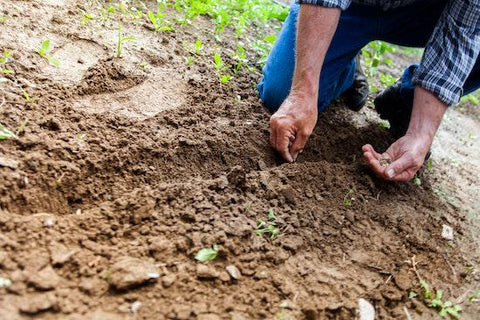In a world that constantly buzzes with technological advancements and rapid urbanization, a growing number of individuals are seeking refuge from the chaos and noise by choosing to live off the grid. This conscious decision to disconnect from conventional utilities and systems allows them to reconnect with nature, reduce their carbon footprint, and embrace a simpler, more self-reliant way of life. Living off the grid is not just a lifestyle choice; it’s a journey toward sustainable independence that offers a plethora of benefits for both individuals and the planet.

The Allure of Off-Grid Living
Imagine waking up to the gentle symphony of birdsong instead of blaring alarms, and breathing in the crisp, untainted air of the countryside. Off-grid living beckons with the promise of uninterrupted serenity, where the cacophony of city life is replaced with the soothing sounds of rustling leaves and babbling brooks. This allure of tranquility is often the driving force behind individuals seeking to disconnect from the grid and forge a deeper connection with nature.
Energy Freedom
One of the most significant advantages of off-grid living is the liberation from traditional energy sources. By harnessing renewable energy options such as solar panels, wind turbines, and hydroelectric systems, off-gridders are able to power their homes sustainably. Solar panels, in particular, have become increasingly accessible and efficient, allowing homeowners to generate their own electricity while reducing their reliance on fossil fuels. This not only decreases their environmental impact but also provides energy security, even in remote locations far from traditional power lines.
Self-Sufficiency and Resilience
Living off the grid fosters a sense of self-sufficiency and resilience that is often lacking in modern society. Off-gridders learn to grow their own food, collect rainwater, and implement innovative waste management systems. These skills not only reduce their ecological footprint but also equip them with valuable knowledge that can be shared with future generations. The ability to provide for oneself in a self-reliant manner fosters a sense of empowerment and independence that is unparalleled.
Minimalist Lifestyle
Off-grid living encourages a minimalist lifestyle, where the focus shifts from consumerism to conscious consumption. Without the constant barrage of advertisements and materialistic pressures, individuals often find themselves prioritizing experiences over possessions. The downsizing process allows for a clutter-free living space, both physically and mentally, resulting in a more serene and purpose-driven existence.
Read Also Garden Styles to Offer for Your Clients
Community and Connection
Contrary to the misconception of isolation, off-grid living often fosters stronger connections within local communities. Neighbors frequently come together to share resources, skills, and knowledge, creating a sense of camaraderie that is deeply fulfilling. Barter systems, communal gardens, and skill-sharing workshops become integral components of these close-knit communities, reminding us that human connections are vital for a truly enriched life.
Environmental Stewardship
living off the grid is a powerful way to contribute to environmental conservation. By reducing reliance on non-renewable resources and minimizing waste, off-gridders exemplify sustainable practices that help combat climate change. This lifestyle choice sends a clear message that individual actions can indeed make a difference, inspiring others to consider more eco-friendly alternatives.
Challenges and Considerations
While the prospect of off-grid living is undeniably enticing, it comes with its fair share of challenges. Reliable access to clean water, suitable land, and initial setup costs can pose hurdles for aspiring off-gridders. Rigorous planning, adaptability, and a willingness to embrace change are essential traits for those embarking on this path. Additionally, a thorough understanding of local regulations and building codes is crucial to ensure a seamless transition to off-grid living.

Conclusion
Living off the grid is a profound and transformative journey that offers a myriad of benefits to those who dare to embrace it. From fostering self-sufficiency and reducing environmental impact to nurturing deeper connections with both nature and community, this lifestyle choice empowers individuals to create a more harmonious and balanced existence. As the world grapples with pressing environmental challenges, off-grid living stands as a beacon of hope, reminding us that a more sustainable and fulfilling way of life is not only possible but also within our reach.


